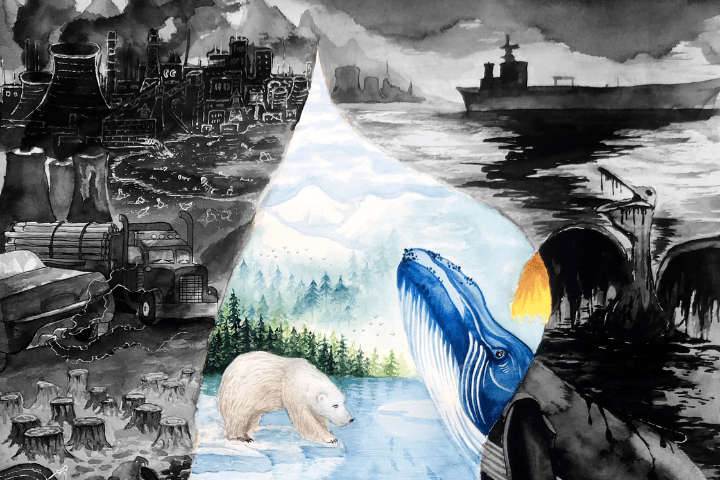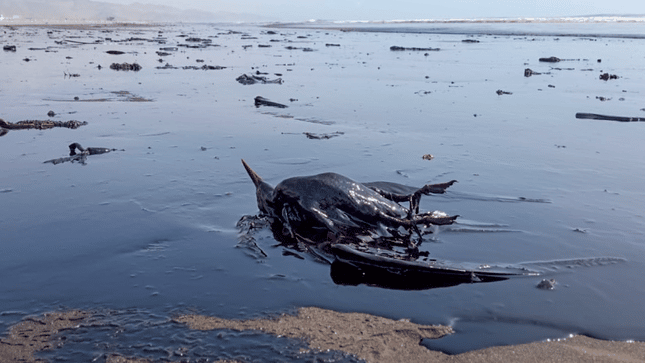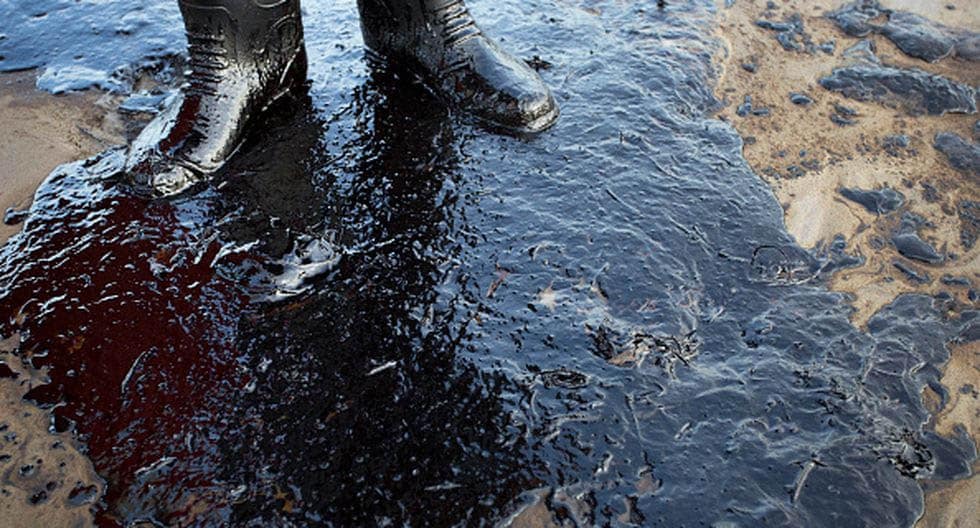
Oil Spills: A Silent Enemy
February 9, 2023By Ariana Piscoya, 2023 Future Blue Youth Council member
Featured Image: “A Glimmer of Hope” by Orion Yang (Vancouver, Canada)
Oil spills at sea are a global environmental issue that is becoming more frequent every year. According to the International Tanker Owners Pollution Federation (ITOPF), the total volume of oil lost to the environment from tanker spills in 2022 was approximately 15,000 tonnes.
One of the most devastating oil spills of the last few years occurred on January 15, 2022, in Lima, Peru. During the discharging operations of the Mare Doricum tank in the facilities of La Pampilla refinery by the Spanish oil major Repsol, a ruptured pipe spilled 11,900 barrels of oil into the sea. The environmental emergency caused the deaths of approximately 900 animals. Although some animals were rescued, 40% of them did not survive the intoxication, said Guillermo Ramos Bardalez, a biologist and technical administrator of the National Forestry and Wildlife Service (SERFOR). Despite efforts to remedy the situation, it is estimated that by 2050 there will remain oil on the beaches.
As a Peruvian girl, this environmental event was a shocking moment for me. Turning on the TV and watching every channel cover the same story about the oil spill inspired me to take action to contribute to my country. Participating in beach cleanups and protests and sharing infographics and posters about the alarming situation were the starting points that led me to become a young environmentalist at the age of 16. That passion brought me to Future Blue Youth Council one year later (I could write an entire blog about that extraordinary experience, but for now, let’s focus on oil spills).

Unfortunately, the oil spill in Peru is just one of the hundreds of oil spills that have occurred throughout history.
In February 2021, the Emerald oil tanker, owned by the Libyan National Shipping Company, caused the spill of 1,360 tonnes of tar ball over 105 miles of Israel and Lebanon’s Mediterranean coast. The ecological disaster harmed wildlife, including sea turtles, whales, lizards, and snails.
Nine months later, another event shook the world. A pipeline operated by Collins Pipeline Co., a subsidiary of PBF Energy Inc., ruptured a few hundred feet from the Mississippi River in New Orleans, spilling more than 300,000 gallons of diesel. The spill killed 2,300 fish and more than 100 other animals, including 39 snakes, 32 birds, a few eels and a blue crab, according to statistics provided by Robert “Trey” Iles, a spokesman for the Louisiana Department of Wildlife and Fisheries. In addition, nearly 120 animals were impacted and captured for rehabilitation.
Why is oil so harmful? To answer this, let’s talk about two important components of crude oil: volatile organic compounds (VOCs) and polycyclic aromatic hydrocarbons (PAHs).
VOCs readily evaporate into the air, giving crude oil a distinctive odor. They are acutely toxic when inhaled and potentially cause cancer. On the other hand, PAHs can persist in the environment for many years. They irritate eyes and breathing passages and cause blood and liver abnormalities. These PAHs absorb visible lights and cause oil to have a dark color.
Do you know the saying: “water and oil don’t mix?”
Since oil is less dense than water, it floats on the sea’s surface, forming an enormous layer. The big problem comes when wildlife interacts with it. For example, when a bird swims in the water and gets in contact with crude oil, the oil sticks to its feathers, causing the animal to be unable to fly and sometimes to die.

Millionaire oil companies responsible for the worst ecological disasters in the world are still operating. Apparently, paying fines is the only penalty for them. Apparently for them, money has more value than the environment…
Our dependence on fossil fuels contributes to these companies’ wealth. Our reliance on oil, coal and natural gas created the climate crisis. If we want to reduce not only oil spills but also the effects of climate change, we have to move away from non-renewable energy sources towards solar, wind, and hydro energy. As individuals, it will not be easy to adapt to cleaner habits, but in the end, the planet will thank us. Bikes instead of cars, organic vegetables to avoid fertilizers and pesticides, plastic-free products… Let’s fight against this silent enemy!
